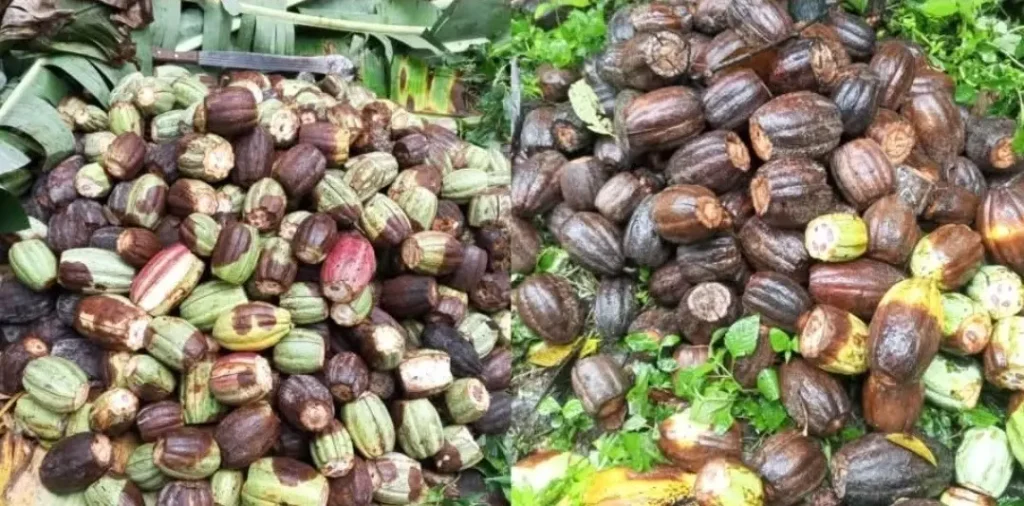A fungal disease known as black pod or brown rot is devastating cocoa farms in Cameroon’s Southwest region, a key cocoa-producing area.
Heavy rainfall and a surge in counterfeit agrochemicals are driving the outbreak, according to local officials and industry experts.
As the world’s fifth-largest cocoa producer, Cameroon faces significant challenges from this epidemic.
Rain Fuels Fungal Spread
The fungus thrives in wet conditions, attacking cocoa pods and trees. Since July, intense rains have hit major cocoa hubs like Muyuka, Mbonge, and Kumba, creating ideal conditions for the disease.
Regional agriculture official Jackson Ntapi Nkwentang called it a “major issue” and urged farmers to ramp up spraying with effective fungicides to curb the spread.
Fake Chemicals Worsen Problem
Many small-scale farmers rely on cheap, unverified fungicides smuggled from Nigeria and Ghana. Epie Promise Ngolepie, a consultant with Help Farmers Cameroon, noted that farmers often reject expert advice, believing they know better.
“Even my own sharecropper used the wrong chemicals,” he said. Many chemical vendors lack agronomy training and focus solely on profits.
Poor Farming Practices
Inconsistent pruning, inadequate field cleanup, and irregular spraying with approved products have intensified the outbreak.
Plans to crack down on fake chemicals are delayed due to a month-long lockdown by armed separatists in the region’s English-speaking areas.
Farmers Face Hardship
The disease has slashed crop yields, pushing farmers into financial distress. Many struggle to repay loans, afford food, or cover school fees.
Divine Ntam, a farmer near Kumba, said, “The chemicals we bought don’t work, and the rains have destroyed our harvest. We don’t know how to survive this season.”
Economic Impact
This crisis threatens Cameroon’s cocoa industry, a vital source of national income. Addressing it requires better access to quality inputs, improved farming methods, and stricter border controls to stop fake products.
How Farmers Can Respond
- Use only approved fungicides from trusted sources.
- Prune trees and clear fields regularly.
- Spray consistently during wet seasons.
- Consult trained agronomists for guidance.
Officials aim to increase inspections and education efforts when security conditions improve.






